Foods Rich in Sulphur: Health Benefits And Risks
Sulphur, a mineral element is required by your body to perform various functions. Include these foods rich in sulfur in your diet to protect against diseases.
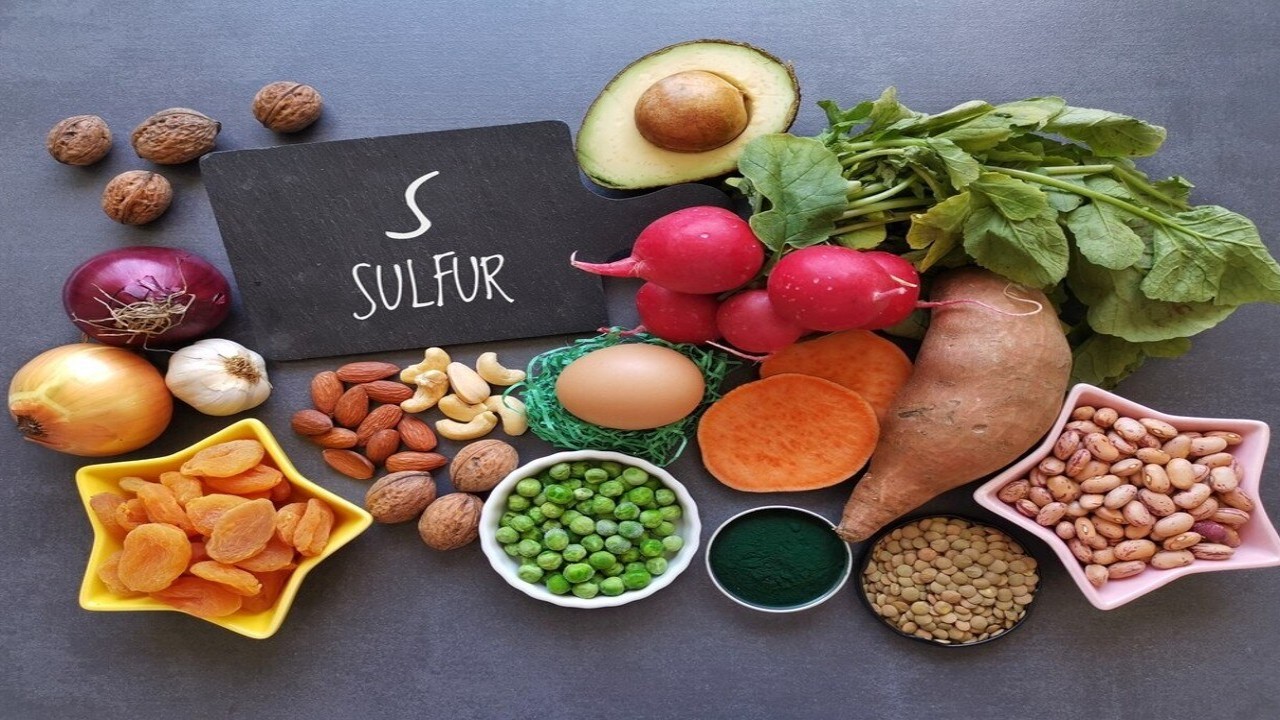
Eating healthy foods is crucial for staying in good health. Including foods rich in sulfur in your daily diet makes an appreciable step towards preparing your body to function well. Sulfur is a mineral that our bodies require daily for maintaining cellular and tissue health. Some rich dietary sources of sulfur are kale, cabbage, onion, garlic, broccoli, meats, and eggs. Common kitchen staples including onion and garlic are widely consumed throughout the world for their pungent aroma and the flavors they impart to delectable cuisines. Though sulfur is an essential element, many people prefer including foods that contain the healthful element, while others feel better by eliminating such foods from their diet. Here, we are listing some sulfur-rich foods and the best health benefits you can reap by making these foods a part of your daily diet. Also, know the precautions you must follow to get the most out of them for your health. Scroll down!
What Is Sulfur?
Sulfur is the third-most abundant mineral element found in the human body (1). It is naturally present in methionine and cystine, the two amino acids your body utilizes to make proteins. Besides, these amino acids are abundantly present in your hair, nail, and skin and play a vital role in keeping them healthy and strong. Also, the natural mineral element helps your body to carry out several metabolic processes. Your body cannot produce methionine (a sulfur-containing amino acid) on its own and you need to get your daily dose through plant-based food sources. Cystine, another form of sulfur-containing amino acid is synthesized by your body and is considered non-essential amino acid. Dietary sulfur intake can be fulfilled through different animal and food-based sources as given below.
Top 11 Foods Rich in Sulfur And Their Health Benefits
1. Onion & Garlic

Onion, garlic, leeks, chives, shallots, and other allium vegetables make a rich source of sulfur. These foods come packed with appreciable amounts of allicin, alliin, diallyl sulfide, and other plant compounds (2). Cooking may reduce the levels of allicin in garlic, thus including raw crushed garlic in your meals makes a better way to reap the maximum benefits of the humble, flavourful veggie.
Potential Health Benefits: The veggies from the allium family are rich in sulfur, antioxidants, and antimicrobial compounds. Including these ingredients in your diet every day may help lower the risk of cancers, cell damage, cardiac problems, arthritis, skin disorders, and many others (3),(4).
2. Cruciferous Vegetables
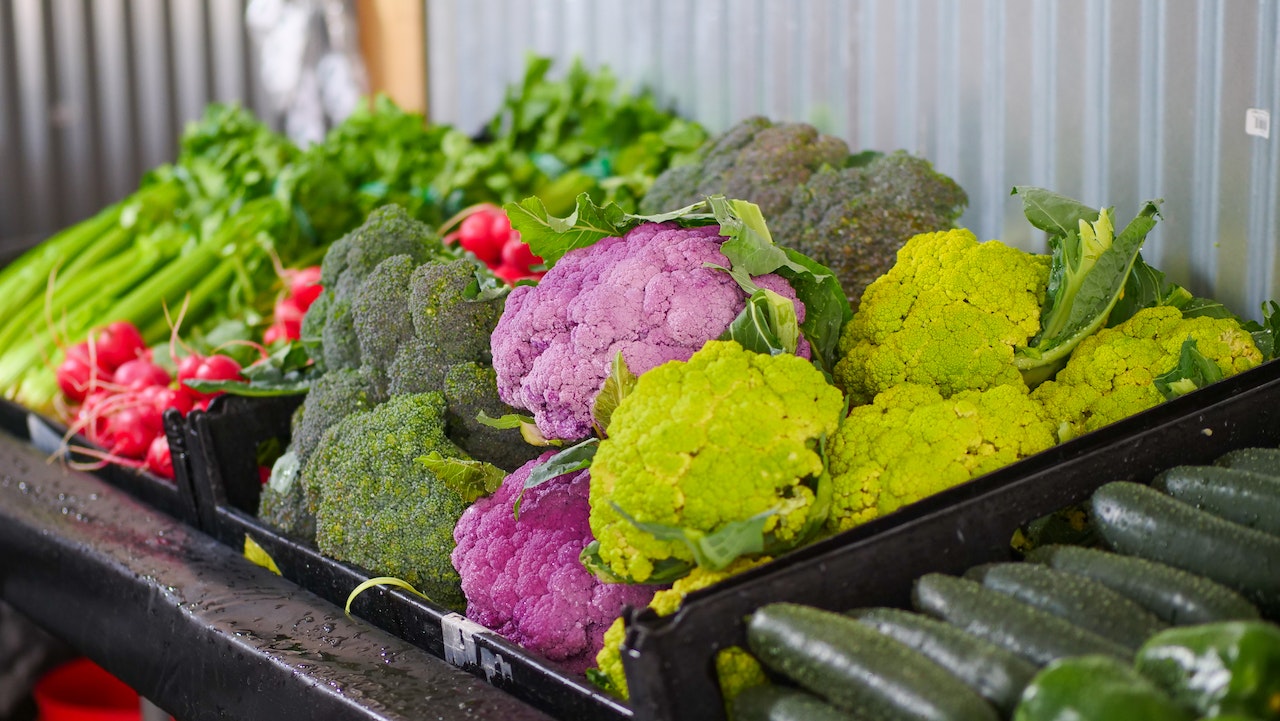
Cruciferous vegetables such as broccoli, cauliflower, cabbage, and kale come enriched with a sulfur compound, i.e. sulforaphane. Adding to the nutritional information of these vegetables, our contributor Kelsey Costa, MS, RDN, and Owner of Nutrition Insights LLC., shares, “Leafy green vegetables like kale and broccoli are rich in a flavonoid called quercetin, which exhibits anti-inflammatory and antihistamine properties. These properties enable quercetin to stabilize mast cells that release histamine in the body, thus potentially reducing the severity of allergy symptoms.” Also, these leafy, green vegetables come packed with healthful plant compounds and nutrients such as vitamins, minerals, and antioxidants that not only provide much-needed nourishment to your body but also help lower your chances of suffering a variety of diseases and allergies.
Potential Health Benefits: Sulforaphane found in broccoli is said to inhibit the activity of the H.pylori bacterium in the body, thus reducing your chances of suffering from colorectal cancer (5), (6). Also, sulfur intake through cruciferous vegetables helps lower the risk of cellular DNA damage and reduces inflammation in the body.
3. Eggs

Eggs make another superfood rich in methionine- sulfur-containing amino acids, vitamins, and minerals. Besides, eggs come packed with the goodness of B complex vitamins, riboflavin, vitamin A, Vitamin D, vitamin B12, etc. which your body needs every day to carry out several metabolic processes. Sharing about the regular consumption of eggs, our contributor Kelsey Costa, states, “The exact number of eggs one can safely consume per day depends on various factors, including individual health status, dietary needs, and lifestyle. However, recent studies suggest that for most people, consuming up to seven eggs per week poses no significant health risks and can contribute to a balanced diet due to their rich protein content and range of essential vitamins and minerals.” Thus, including eggs in your diet may help you stay fit and active.
Potential Health Benefits: Methionine is said to improve your immune functions, thus safeguarding you against a variety of allergies and diseases (7). Besides, it may also help protect your body against oxidative stress and lower your chances of suffering a variety of health problems. Besides, eating eggs in moderation may improve your cardiac and bone health (8).
4. Seafood
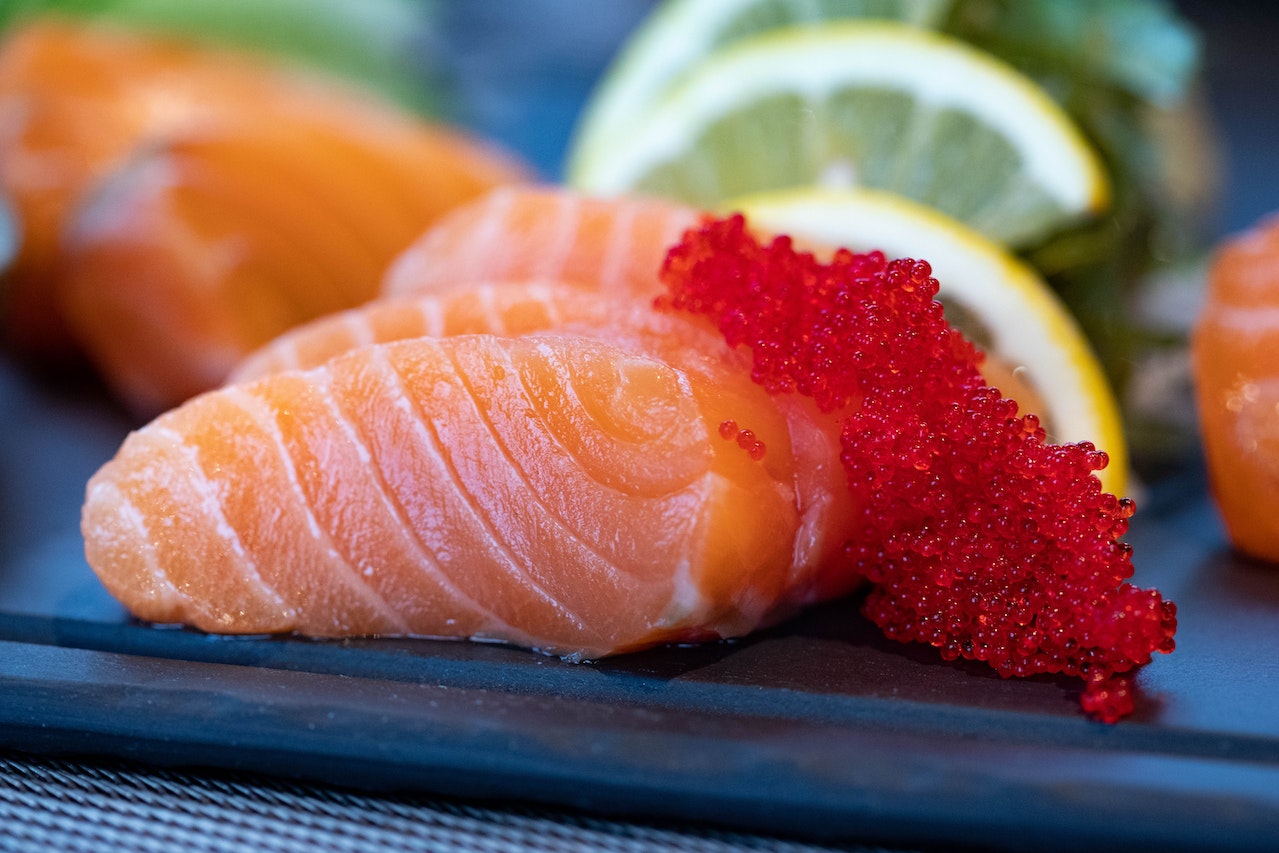
Fatty fish, prawns, crabs, and oysters too are brimming with sulfur-containing amino acid methionine, which makes them a great addition to your seafood platter. Apart from high amounts of sulfur, these foods also come packed with Omega-3 fatty acids, vitamins, and essential minerals such as zinc that play several functions in carrying out biochemical reactions in the body. If you prefer eating an animal-based diet, eating seafood in moderation can replenish your body with the required amounts of sulfur along with other essential nutrients.
Potential Health Benefits: Dietary methionine obtained from animal or food sources are known to improve liver health, insulin resistance, and bone health (9). Besides, it acts as an antioxidant and lowers inflammation in the body. In addition, healthful omega-3s in fatty fish and other seafood may help improve heart functions, and brain functions and help lower your risk of suffering stroke, hemorrhage, and neurodegenerative diseases (10), (11).
5. Legumes
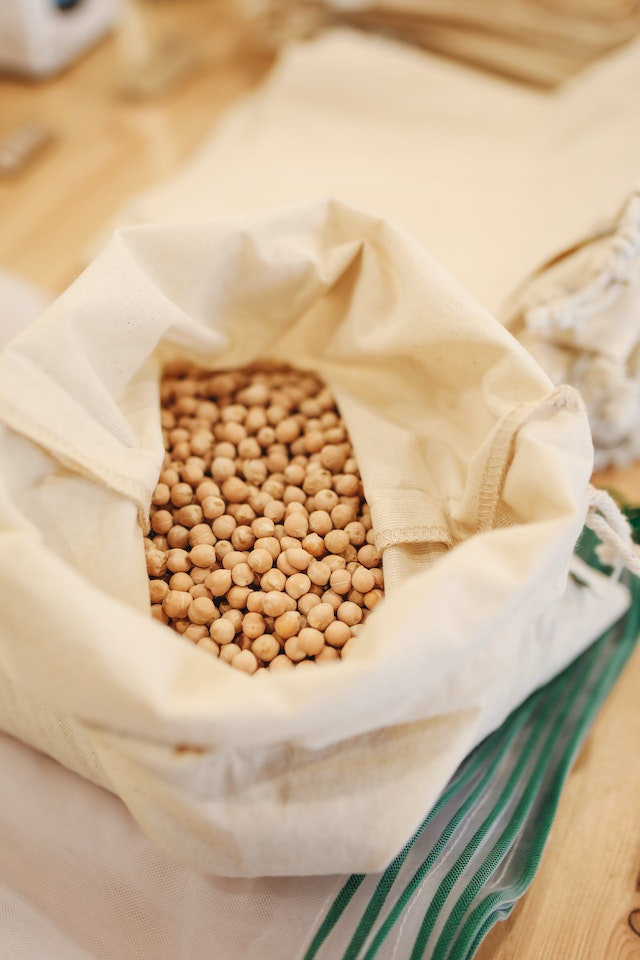
Soybeans, lentils, black beans, kidney beans, and peas come enriched with sulfur-containing amino acids. Apart from replenishing your body with sulfur-containing amino acids, legumes make a storehouse of other crucial nutrients such as proteins, vitamins, carbohydrates, calcium, potassium, phosphorus, zinc, and dietary fibers.
Health Benefits: Eating legumes and minimally refined whole grains reduces your risk of suffering from type 2 diabetes and may help control glycemic and lipid profile in diabetic people. Also, eating sulfur-rich legumes and beans in moderation may help control cholesterol and lower your chances of suffering cardiovascular diseases. Legumes are rich in dietary fibers that impart a feeling of being full and may help with weight management (12). Also, the intake of fiber-rich foods such as legumes may improve gut microbiota, aid healthy bowel movements, and promote intestinal health (13).
6. Nuts And Seeds
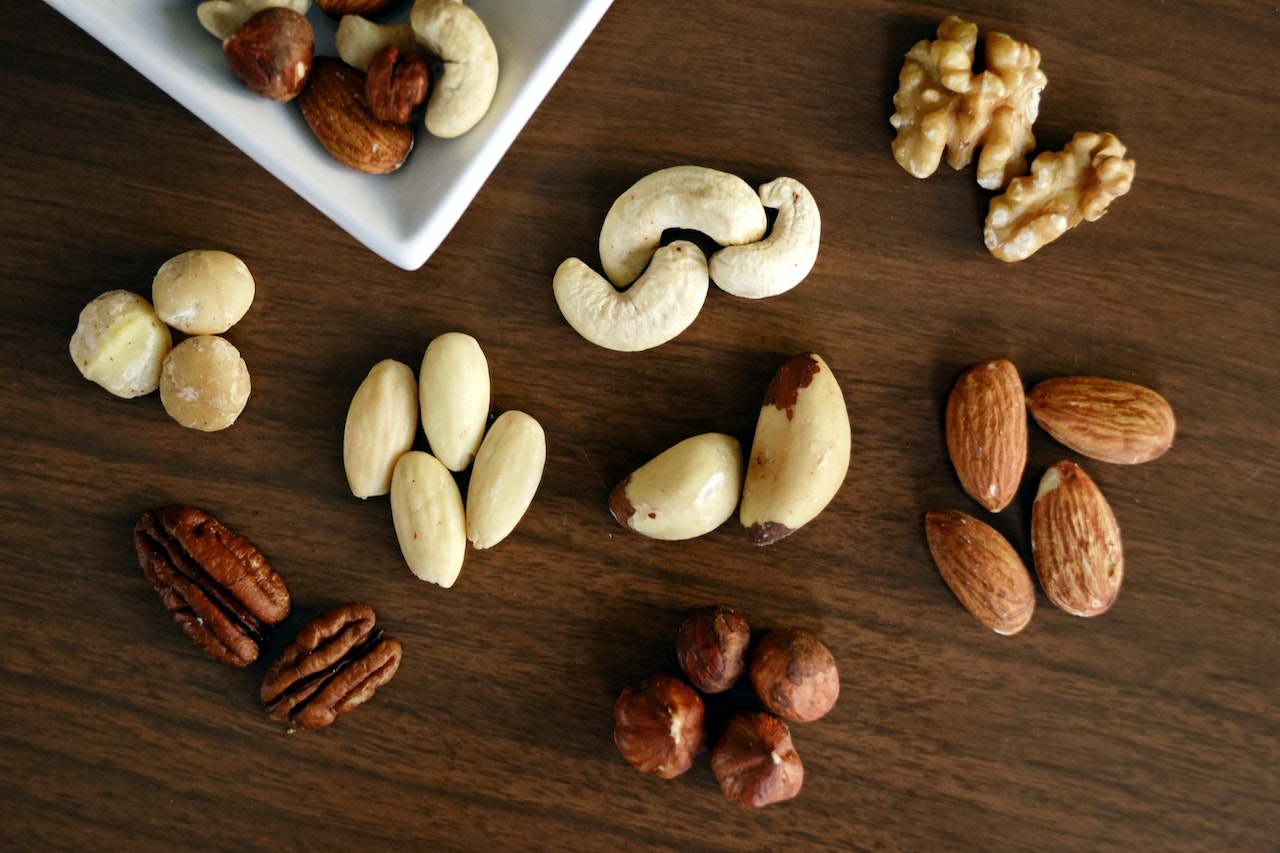
After legumes, nuts, and seeds make another addition to the list of high-sulfur foods. Brazilian nuts are said to be the highest sulfur-containing nuts and 1 ounce serving of Brazilian nuts may deliver around 44% RDI of methionine and 30% of cysteine. Though these nuts make a good source of magnesium, zinc, and sulfur, you must ensure to consume them in moderation as consuming too many of them can put you at the upper limit of daily intake of selenium mineral, eventually increasing your risk of suffering several health problems. Some other seeds such as chia seeds, sunflower seeds, and pumpkin seeds make some other appreciable addition to your snacking regime.
According to Shweta Shah, Founder Of EatFit247, “Generally, a handful (about 1 ounce) of mixed nuts and seeds per day is a reasonable guideline. This provides essential nutrients, healthy fats, and fiber without excessive calorie intake. Sulfur-rich nuts and seeds contribute to antioxidant and anti-inflammatory effects in the body. As individual nutritional needs vary, consulting with your personal nutritionist can help determine the ideal amount based on factors like overall diet, activity level, and specific health goals.”
Health Benefits: Sulphur in nuts is known to reduce the impact of oxidative stress on your body. The healthy omega-3 in nuts and seeds may benefit your health and cognitive health. Also, the dietary fibers in nuts and seeds impart a fuller feeling and may help you keep your body weight in check when consumed in moderation (14).
7. Milk And Cheese

Milk readily contains cystine and methionine in relatively lower amounts. Interestingly, the amount of sulfur amino acids increases when milk is fermented to produce cheese. The bacteria involved in the cheese-making process is said to improve the amounts of sulfur in the milk, thus imparting its particular flavor and smell.
Health Benefits: Consuming milk and dairy products in moderation may improve your cardiovascular health and is said to reduce your risk of suffering from type 2 diabetes. Besides, vitamin D and calcium are known to improve bone mineral density, thus making them stronger and reducing your risk of suffering osteoporosis and other problems related to bones. Besides, valuable nutrients in milk and dairy products may reduce the risks of certain types of cancers (15).
8. Wine

Red wine is liked by many people across the globe for its rich taste and aroma. Wines naturally contain sulfites or sulfur dioxide produced during the fermentation process.
Health Benefits: Wines are rich in polyphenols, tannins, and antioxidants that fight against free radicals in the body and fight against certain types of cancers. Also, the probiotics in fermented drinks such as wine may improve colon health when consumed in moderation. Also, valuable compounds in wine may reduce your risk of suffering cardiovascular ailments (16).
9. Wholegrains
Wholegrains such as wheat, parsley, and barley make a rich source of sulfur. Apart from that, they contain appreciable amounts of dietary fibers, essential minerals, and vitamins you need every day to stay fit and active.
Health Benefits: The antioxidants present in whole grains diligently fight against free radicals and may help reduce chronic inflammation in the body (17). Certain types of dietary fibers found in wholegrains may act like probiotics and improve gut flora. Improved gut flora leads to better nutrient absorption and healthy digestion, which is the key to maintaining overall wellness (18).
10. Dried Fruits

While fresh fruits don’t contain much sulfur, dried apricots, and other preserved fruits contain relatively higher amounts of sulfur. The preservatives used to keep dried fruits from rotting contain sulfur as an active ingredient.
Health Benefits: Though dried fruits such as apricots, figs, and kiwis contain higher amounts of sugar and calories, they are said to be beneficial for your health when consumed in moderation. It is because these dried fruits add up dietary fibers, potassium, and unsaturated fats which aid weight control, improve metabolism, regulate blood pressure, and fight oxidative stress (19).
11. Coconut Milk
Coconut milk makes a sulfur-rich alternative for vegans and people who don’t like to consume animal or dairy products in their diet. Coconut milk is highly nutritious and widely consumed across Asia to prepare a variety of cuisines and beverages. It makes a wonderful source of proteins, electrolytes, fats, vitamins, and minerals that fuels your body to carry out different processes for your overall well-being.
Health Benefits: Medium-chain triglycerides in coconut milk may help induce the process of thermogenesis in your body, which helps with weight management (20). The polyphenols in coconut milk are said to protect lipid proteins in the body and fight against DNA damage (21).
Potential Side Effects of Eating Too Much Sulfur
While eating sulfur-rich foods in moderation may provide you with numerous health benefits, eating too much of them may cause certain side effects. Some of them are as follows-
- Consuming foods with high sulfur content may further worsen the symptoms in patients with Ulcerative Colitis or Crohn’s Disease. Eating too much sulfur in your diet may pace up the activity of sulfate-reducing bacteria in your gut. These bacteria negatively impact the gut barrier, thus causing inflammation and cellular damage in the intestine (22). Nutritionist Shweta Shah further says, “High sulfur content in the diet can potentially exacerbate colitis due to its role in producing hydrogen sulfide (H2S) in the gut. H2S is a gas that can have both beneficial and harmful effects. In colitis, excessive H2S production might contribute to inflammation and damage to the intestinal lining. Foods high in sulfur, like cruciferous vegetables, garlic, and onions, can increase H2S production. Managing sulfur intake through balanced dietary choices may help mitigate colitis symptoms. Consulting a healthcare professional for personalized guidance is advisable.”
- Some people may be sensitive to sulfur and may experience itching, swelling, redness, rash, nausea, flu, and asthma-like symptoms. In extreme cases, a sulfur diet may cause seizures and even anaphylactic shock (23).
Conclusion
Sulfur is a mineral element required by the body to carry out different metabolic processes. Including foods rich in sulfur in your everyday diet can provide you with several health benefits. Some of them are- reduced risk of cancers, lower inflammation, improved gut health, and lower risk of developing diabetes, and cardiovascular ailments. Common kitchen staples such as cruciferous veggies, meat and poultry, spices, legumes, and whole grains are rich sources of sulfur and can be clubbed together to prepare a variety of delectable and healthful dishes. Though consuming foods high in sulfur is generally safe for most people, they may show certain side effects in people suffering from digestive disorders such as ulcerative colitis, Crohn’s Disease, and those with sulfur sensitivity.
Contributor: Kelsey Costa, MS, RDN, a registered dietitian and nutrition consultant for Consumer Health Digest





 JOIN OUR WHATSAPP CHANNEL
JOIN OUR WHATSAPP CHANNEL























































